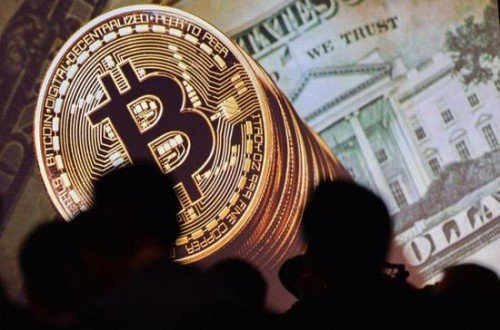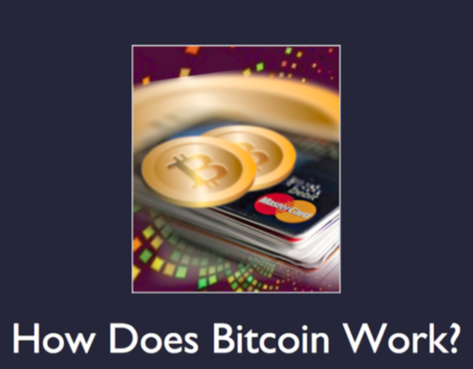What is bitcoin?
What is Bitcoin
BitCoin is a P2P form of virtual currency. Point-to-point transmission means a decentralized payment system. Bitcoin is not issued by a specific currency agency. It is generated through extensive computation of specific algorithms. Bitcoin economy uses a distributed database of nodes across the entire P2P network to identify and record all transactions. P2P decentralization and algorithms themselves ensure that currency can not be artificially manipulated by massively producing bitcoin. Cryptography-based design allows Bitcoin to be only transferred or paid by the real owner. This also ensures the anonymity of currency ownership and distribution transactions.
Bitcoin is a network of virtual currency, similar to Tencent Q coins, you can use bitcoin to buy some virtual items, such as online games, hats, equipment, etc., as long as accepted, you can also use bitcoin Buy real-life items.
The biggest difference between bitcoin and other virtual currencies is that the total amount of bitcoin is very limited and extremely scarcity. The monetary system in the first 4 years only no more than 10.5 million, then the total number will be permanently limited to 21 million. Another point is that you can use your computer to make bitcoin.
Detailed introduction
Bitcoin is an electronic currency generated by open source P2P software. Some people translate Bitcoin as "Bitkin." The concept of BitCoin, a virtual currency originally put forward by Satoshi Nakamoto in 2009, is now used to refer bitcoin to open-source software designed and published by Nakamoto and to construct P2P networks on it. Unlike most currencies, instead of relying on a particular central issuer, bitcoin records transactions in currencies using a distributed database of nodes throughout the P2P network and uses cryptographic design to ensure currency security at all levels Sex. For example, bitcoin can only be used by its real owner, and only once the original owner loses ownership of the bitcoin after the payment is completed.
feature
Bitcoin is designed to allow anonymity of ownership and usability. Bitcoin can be stored in a personal computer as a wallet of computer files or as a third-party hosting service. Whatever the form, Bitcoin can be sent to anyone on the Internet via a Bitcoin address. The design of P2P's distributed and non-existent central management mechanism ensures that no agency can manipulate the value of Bitcoin or create inflation.
Bitcoin correct understanding:
The biggest difference between bitcoin and other virtual currencies is that the total amount of bitcoin is very limited and extremely scarcity. The monetary system in the first 4 years only no more than 10.5 million, then the total number will be permanently limited to 21 million. Another point is that any Internet user can use a computer to make bitcoin.
When Bitcoin was born in 2009, each prize was 50 bitcoins. Ten minutes after the birth, the first 50 bitcoins were generated, while the total amount of money was 50. Reaching 210,000 regions every four years reduces rewards by half from 50 bitcoins to 25 and from 25 to 12.5. Until 2140, reaching a total cap of 21 million, the total amount of bitcoin excavated has exceeded 12 million. Market value of more than 10 billion US dollars.
Bitcoin important features:
1, decentralized
The Bitcoin network is not controlled by a central authority. Each machine mining and bitcoin trading process forms part of the network and operates together. This means that in theory, no central authority can collapse through monetary policy.
2, easy to set
Traditional banks need to open a bank account. Establish payment and transfer with merchant's account. Bitcoin just set a bitcoin address in seconds, it's easy and fast, and you do not have to pay for it.
3, anonymity
Users can save multiple bitcoin addresses without the need for any personal information such as names, addresses and other users.
4, transparency
Bitcoin block details, you can view the details of each bitcoin address transactions, Blockchain real-time transaction records. That is, if a user publishes a Bitcoin address, anyone can view the transaction details for that address. But do not know who the user of this address is.
5, transaction costs low
Any traditional bank transfer, international remittances will receive ranging from the high cost. But there are few bitcoin deals.
6, speed
Users can transfer to any location, within a few minutes can arrive, 6 confirmed Bitcoin network processing payment.
7, Irreversible
When users send bitcoins to a Bitcoin address, the transfer is irrevocable unless the payment is for you.
8, global versatility
In any country in the world, only need to have a network of places can be used.
9, a limited number
The biggest difference between bitcoin and other virtual currencies is that the total amount of bitcoin is very limited and extremely scarcity. The monetary system in the first 4 years only no more than 10.5 million, then the total number will be permanently limited to 21 million.

Bitcoin transaction costs
Transaction costs are voluntarily generated by people doing bitcoin transactions because the person who wants to make the transaction can either pay for the transaction or for a fee, but because the transaction must be received by the person having the dig, included The new block to be created, on the other hand, does not say that miners must accept the transaction, so trading fees have become a motivation for miners. It ensures that a particular transaction will be included in the next block to be produced.
Transaction costs are handled by absent work on bitcoin, and when a new bitcoin block is successfully generated, all the information for the transaction is included in the block and all transaction costs are collected through the user-created block.
Why Bitcoin security
Bitcoin exists in a huge p2p network. Groups using bitcoin recognize an algorithm that, under current conditions, will generate only about 6 new BTCs per hour, up from the current 50. That is, in this world, there are only about 300 BTC generated per hour. This output will also be limited by the network automatically adjust the difficulty of production. You can not speed up currency production by modifying the algorithms and parameters of all your clients (client is open source).
How does a bank without nodes let everyone trust and work together?
Each node on the p2p network records a detailed list of each transaction since the birth of the BTC, from which it can be deduced that each BTC belongs to who. So when you accept a deal, you know what other people give you money is not legal.
Speaking from the most basic:
Each account is actually a pair of public and private keys, the private key is the account owner. If A wants to give B a sum of money, A adds the amount of money to B's public key and signs it with his own key. And B saw this signature, you can understand, indeed, A transferred to him as the number of BTC.
Then the transaction needs a witness, secured transactions have taken place. In this way, B later want to use the money when it is legal. Guarantor is the entire network using BTC.
When launching the deal, A must broadcast the signed transaction as much as possible to the p2p network, eventually letting each node know about it. B from p2p network constantly receive the confirmation of others. When it receives enough confirmation, it thinks that A did send out the deal. After that, B is free to use the money.
When B uses A to transfer its money to C, it also broadcasts to enough of them, who are eventually received, to have them secured. Each guarantor only confirms that B has enough money to pay. In essence, the BTC network does not record every dollar it belongs to. It records every transaction from its inception until its current date, and deducts how much money is spent on each account. When anyone tries to confirm a trade order, it needs to confirm that there is not much money on that account.
Bitcoin upstream and downstream industry chain what?
1, mining pool (the beneficiary of the miners, Bitcoin bitcoin rewards and transaction fee income):
In order to motivate users with low computational power to continue their participation in mining, pools are created in which many different people contribute their own computational power to claim a block and then distribute it according to each individual's contribution reward;
2, mining machine (buy bitcoin machine manufacturers, and related industry chain);
3, trading platform (charge transaction fee, bitcoin China transaction fee is 0.3%);
4, server hosting provider
5, Taobao sell bitcoin, selling mining reference tutorials;
Mining machine speed factors affecting what?
Mining speed is mainly related to CPU performance, using high-end graphics cards, using specialized software, and participating in the mine.
CPU is mainly designed and processed by the user to judge, controlled by the software, good at logic operations. The GPU is designed primarily for graphics processing. Graphics processing is very repetitive, because the same large number of pixels are always displayed on the display. The main power of the GPU is to repeat the work, there are a large number of ALU (computing / logic unit), much more than the CPU. Therefore, a large number of mathematical operations can be performed at the same time.
The image of a saying is that the CPU is like a small group of smart people, you can quickly perform the task. A GPU is like a big group, and everyone in it is not smart enough to perform repetitive tasks, but productive because of the large number of people. Repeatedly trying out different hash values - the process behind Bitcoin mining - is a repetitive task that is well suited for GPUs, with only one number at a time.